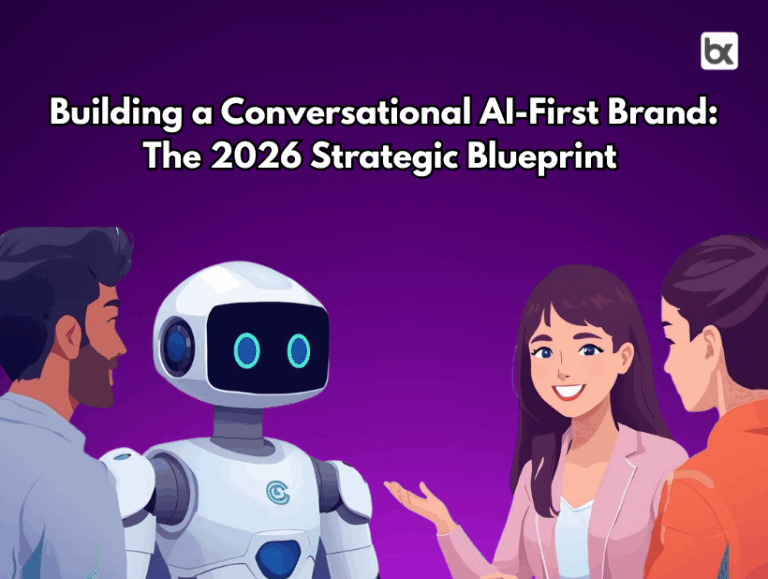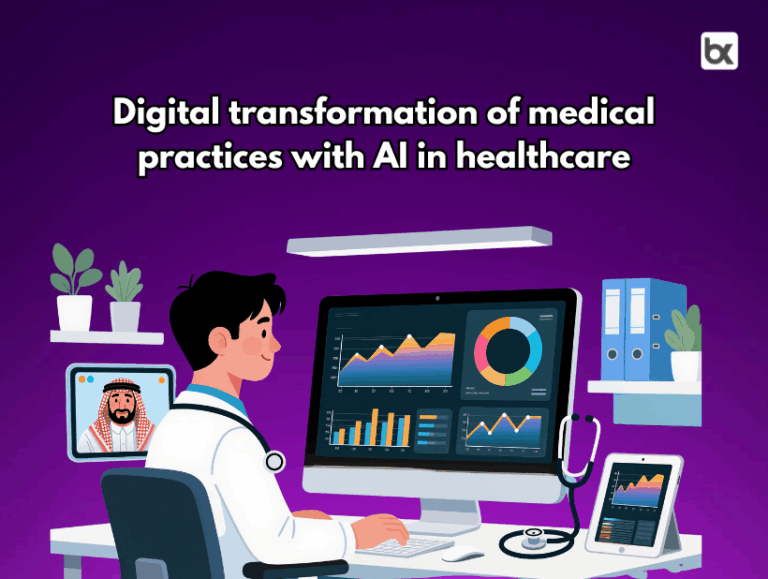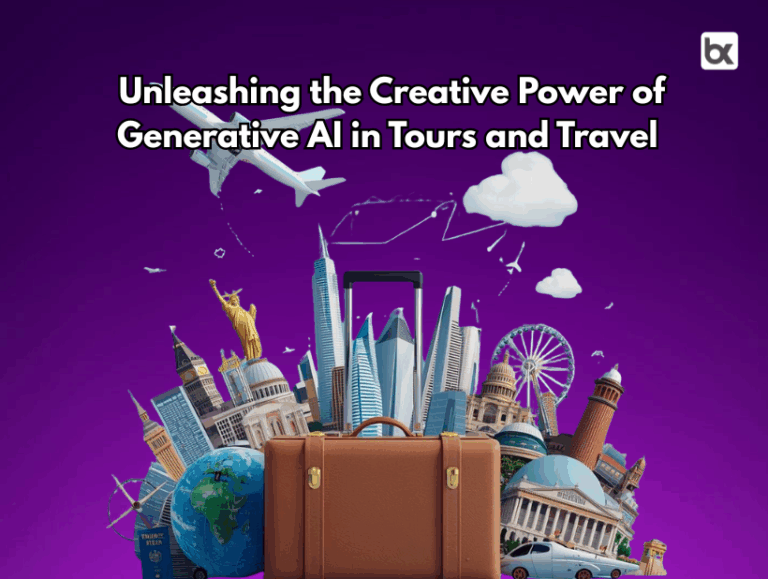Healthcare Chatbots: Transforming Patient Care & Support
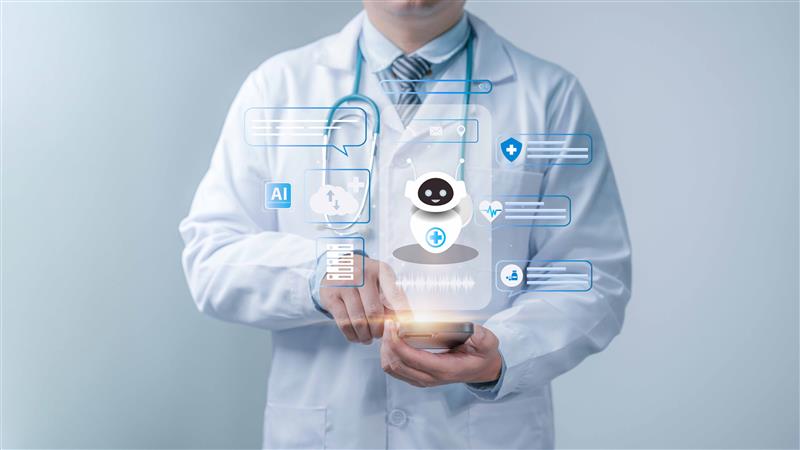
Healthcare chatbots: connecting patients to information.
The healthcare industry has always struggled with accessibility and timely communication. Patients often face long wait times, confusing appointment systems, and delayed responses to their questions. In an era where information needs to be immediate, healthcare chatbots have emerged as a practical solution.
Healthcare chatbots act as digital assistants that connect patients to accurate information, streamline processes, and support medical teams. Unlike traditional call centers or static websites, they deliver real-time responses that empower patients to take charge of their health.
What are Healthcare Chatbots?
A healthcare chatbot is an artificial intelligence driven conversational tool that helps patients in the medical industry. It can answer questions, provide guidance, and send reminders through websites, mobile apps, or messaging platforms.
While a medical chat bot will not and cannot replace a doctor, it provides an important first layer of support. From answering common medical questions to booking appointments, healthcare chatbots help alleviate bottlenecks all while increasing patient satisfaction.
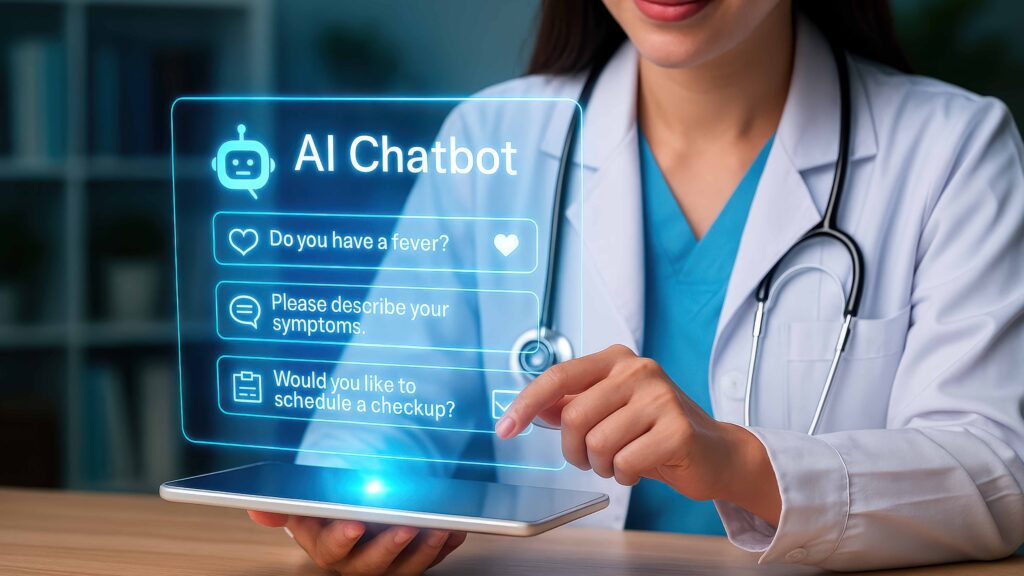
Why Healthcare Chatbots Are Trending:
The healthcare industry is progressing to adopt healthcare chatbots for several reasons:
Patient Expectations –
People expect instant responses from banking, retail, and travel. Now they expect the same from healthcare providers.
Cost efficiency –
Automating routine interactive touches provides additional time for staff to concentrate on the more complex cases.
Scalability –
One medical AI chatbot can handle thousands of queries at the same time, without fatigue.
Access 24/7 –
Patients do not have to wait until normal office hours to get information.
Overall, this means a faster, more reliable, and patient-centered healthcare experience.
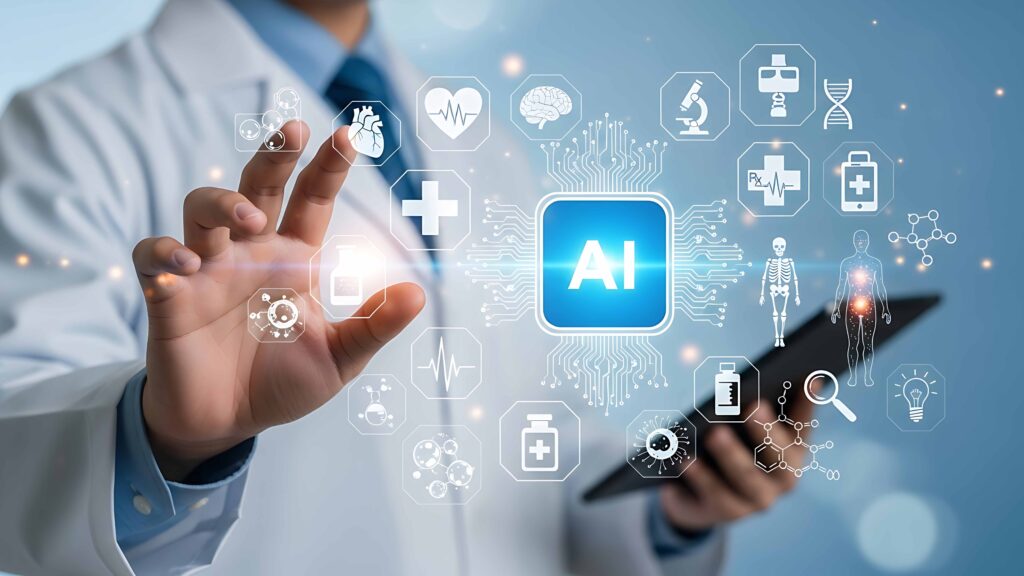
Ways Healthcare Chatbots Aid Patients:
1. Streamlining Appointment Scheduling
Patients often find the appointment booking process to be extremely tedious. A healthcare chatbot can determine doctor availability, schedule the appointment, and send reminders for appointments to lower a patient’s missed visits.
2. Delivering Accurate Health Information
Patients tend to turn to the Internet for answers which can not only cause confusion but result in misinformation. A medical chatbot uses only verified sources which you provide to give reliable and trustworthy medical information.
3. Managing Prescriptions, and Medication Reminders
Missed medications create complications and are one of the leading causes of health complications. A medical AI chatbot can send reminders for medication, explain concise general instructions on dosages, and let patients know when to refill or provide reminders to refill medications.
4. Triage and Symptom Checks
Patients can interact with a healthcare chatbot before deciding to speak with a doctor to discuss the symptoms being experienced. A chatbot will guide the patient in identifying whether they need home care, a telemedicine appointment, or a visit to urgent care.
5. Mental Health Services
Mental health services are complex and can be limited in places. Chatbots do not take the place of a therapist. They can provide a patient with beginner support, coping strategies, and links to help with mental health service providers.
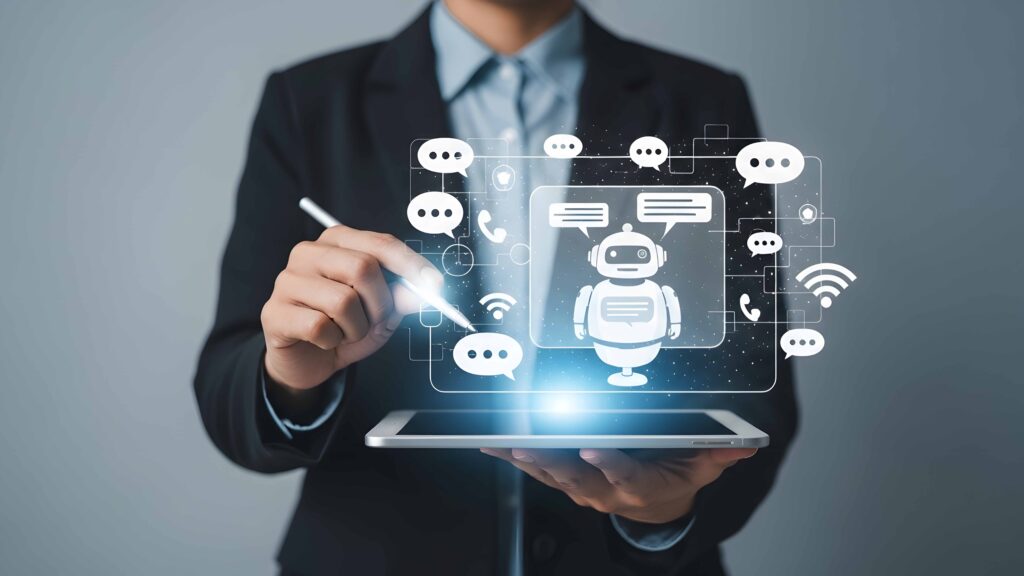
Benefits for Healthcare Providers:
Healthcare providers are also experiencing measurable benefits from adopting chatbots:
- Reduced Administrative Burden: Automating repetitive inquiries like “What are your clinic hours?” or “Do you take insurance?” saves time.
- Improved Patient Engagement: A medical AI chatbot helps maintain continuous communication between visits.
- Data Collection: Chatbots collect valuable patient data that can inform treatment plans and improve services.
- Cost Savings: By reducing unnecessary phone calls and visits, healthcare systems can allocate resources more efficiently.
Real-World Examples: AI Chatbot Technology in Action
Replika – Emotional AI Companion
Replika is designed as an AI friend that learns from conversations. A Stanford University study reported that some students using Replika experienced fewer suicidal thoughts, with 3 percent saying it directly prevented them from thinking about suicide. On Reddit, a user with schizoaffective bipolar disorder shared that Replika helped reduce their anxiety and kept them from making poor decisions during a manic episode. Another user in the US said it gave them confidence and helped them “smile more” and “feel less alone.” These examples show how a healthcare chatbot can provide meaningful emotional support.

Wysa – Youth Mental Health Support
Wysa focuses on children and young people with CBT-based support. In the UK, students who used Wysa through school programs said it helped them “feel heard without being judged” and made exam stress more manageable. Teachers working within NHS-integrated schools noted higher student engagement and improved self-management. This shows how a medical AI chatbot can deliver safe, accessible, and effective support for youth.

Youper – Therapy-Inspired Conversations
Youper combines AI with CBT-inspired dialogue for quick, personalized mental health check-ins. A US-based user described it as “like talking to a real person” and praised how it helped them track moods and reflect on emotions during stressful workdays. Others mentioned it gave them clarity when struggling with anxiety. These experiences highlight how a medical AI chatbot can fit naturally into everyday routines.
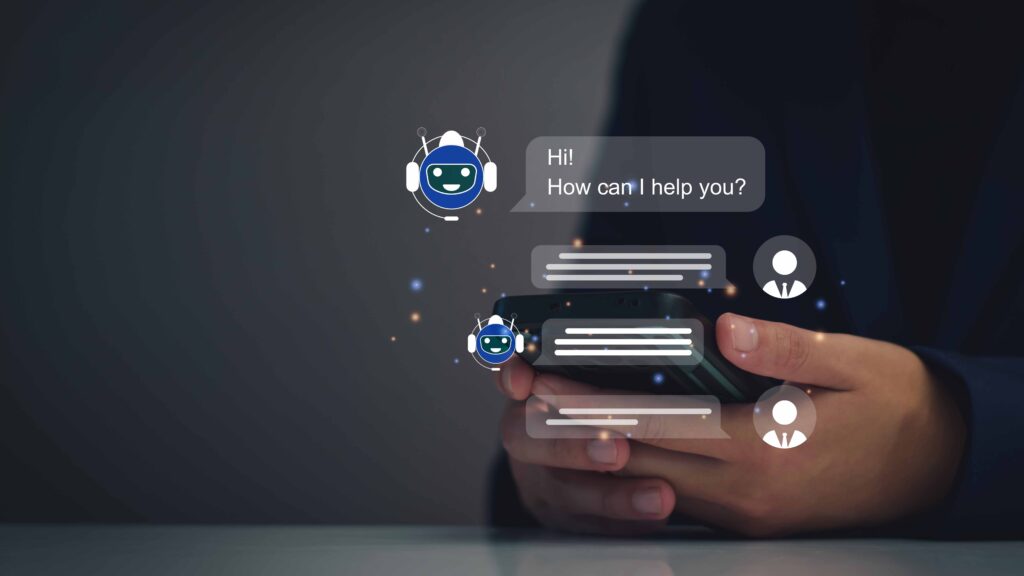
Why healthcare chatbots matter:
An inefficient and inaccessible healthcare system is no longer an option. A healthcare chatbot can put patients in contact with reliable, trustworthy information quickly, and can lessen the load for providers. From scheduling appointments to medication reminders, to even answering health questions, chatbots have become important partners in the practice of modern healthcare.
The Value of Human Experience:
While no medical chat bot can replicate a doctor, chatbots can help ensure that patients are empowered, supported and on track at every stage. Chatbots provide a scalable and cost-effective way for providers to engage increasing demands for patient access.
The Future of Healthcare AI
As technology matures, it will no longer be simply an innovation to use a medical AI chatbot, it will become a necessity as we navigate what it means to provide quality healthcare in a digitized age.
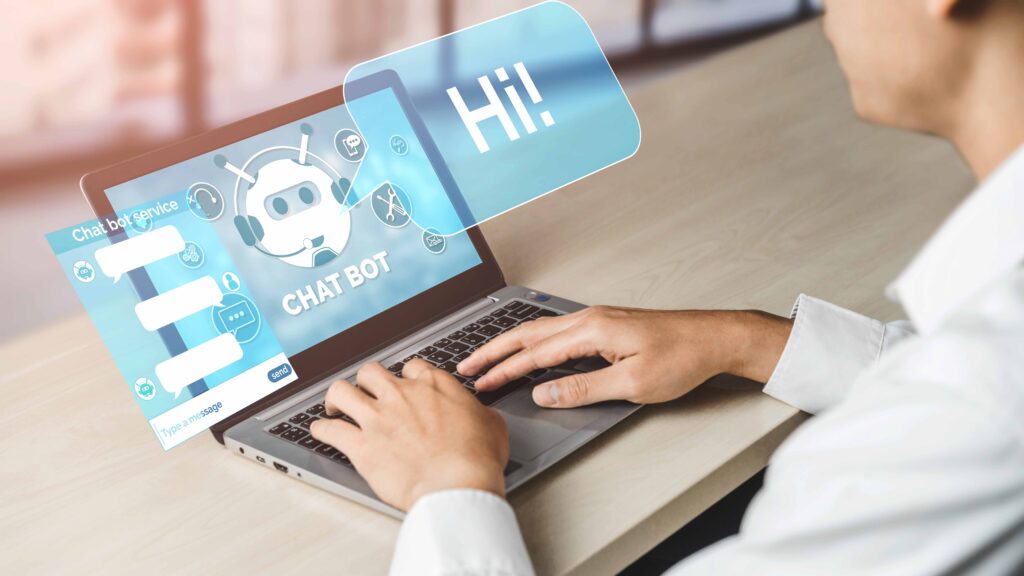
What botxpert does for you:
Companies like botxpert will make this transition easier, by giving healthcare providers the ability to build no-code, secure, customizable, AI powered chatbots that are manageable. Allowing lean medical teams to provide enterprise level patient support without heavy capital outlay.
Start for free. Launch in minutes. Let your website talk.
Try botxpert today and build your ideal website chatbot.
check out our other blogs to know more. blogs.botxpert
